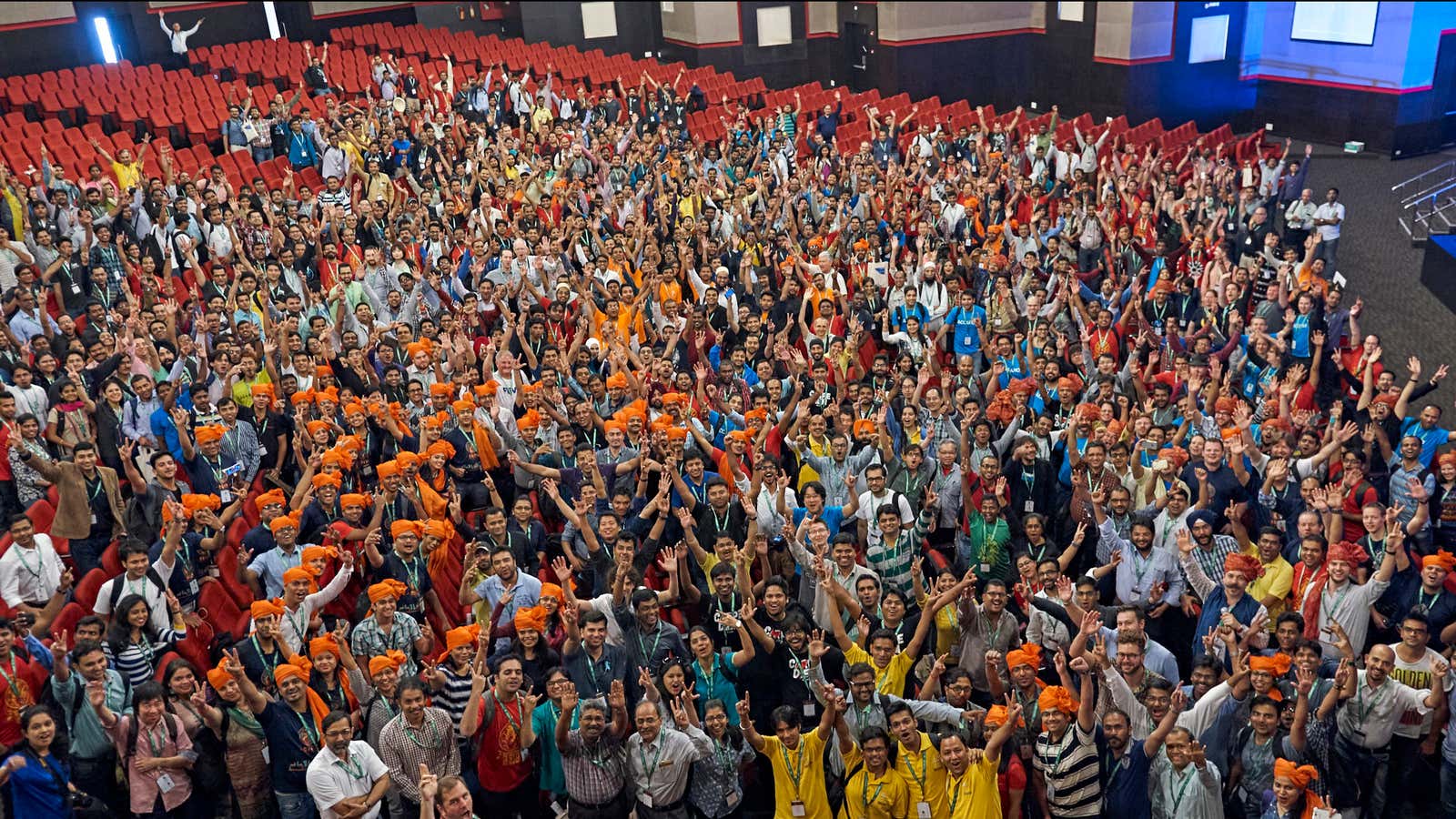India remains among the least friendly countries for lesbian, gay, bisexual, and transgender (LGBT) people.
This was clear to me as an engineering student in the late 2000s. In the hallowed halls of my alma mater, we debated and argued about everything under the sun. Most of the time, I came out a better person by learning something new from others’ views. Sadly, that didn’t happen when it came to LGBT issues. I was arguing with some of the smartest people I had ever met—students as well as professors—and, yet, I couldn’t fathom how they held such regressive views on sexuality.
Then, in 2009, a year after I moved to the UK, an Indian high court ruled that section 377 of the Indian penal code which criminalised homosexuality was unconstitutional. Watching from afar, I cheered the direction in which my people were moving. Only to find the supreme court of India, in 2013, overturning the high court’s ruling.
Now, in 2016, news from the Indian Institute of Technology (IIT) Bombay, one of the country’s top engineering colleges, has given me hope again. On Oct.03, the institute’s magazine, Insight, released a survey of the views of more than 600 students on LGBT issues. Back in 2008, when I was studying at the rival Institute of Chemical Technology, Mumbai, such a survey would have been simply unthinkable. What is more heartening is that the responses Insight’s survey got are way more positive than I had expected.
Quartz analyzed the results independently. Here are some of the highlights:
While largely positive, there are some questions on same-sex parenting and dressing that IIT Bombay’s students remain ambivalent about.
There is good evidence showing that children of same-sex parents are at no disadvantage compared to heterosexual parents. So why the ambivalence on related questions?
“You have to remember that students’ perceptions of LGBT issues are largely formed in the many years they’ve spent at home than the few years they spend at IIT,” said Shreeyesh Menon, an editor at Insight.
Yet, the results reflect a much-needed change from the past. One of the key reasons behind such open attitudes is the work of Saathi, a support group founded by two IIT Bombay students in 2011 to advocate for LGBT rights.
Saathi manages a Google group that allows people to share stories anonymously if they so wish. It also organizes plays, talks, and open sessions to create a discussion forum for students who wish to engage with LGBT issues. This, in part, has helped create a positive attitude towards LGBT issues.
“Unlike in the rest of the country, it’s not common for someone at IIT Bombay to come to a public forum and say homophobic things,” says Mihir Bhosale, a member of Saathi.
Saathi’s work at IIT Bombay has been inspirational. There are now at least seven universities in India, mostly other IITs, with student groups that advocate LGBT rights.
In the West, scientists usually identify themselves as liberals. A 2015 US survey found that lesbian, gay, bisexual, and transgender (LGBT) scientists felt more welcome at the workplace than their peers in other professions. Slow as it may be, I’m glad to finally see progress on LGBT issues among scientific institutions in India, too.
A note on methods: If you compare the results of the survey reported in this story, they will appear to be slightly different than what Insight reported. We spoke to experts on surveys and found Insight’s analysis inadequate. You can explore the raw data of the survey, Insight’s analysis, and Quartz’s analysis in this spreadsheet, which has notes about how the analyses were conducted.
